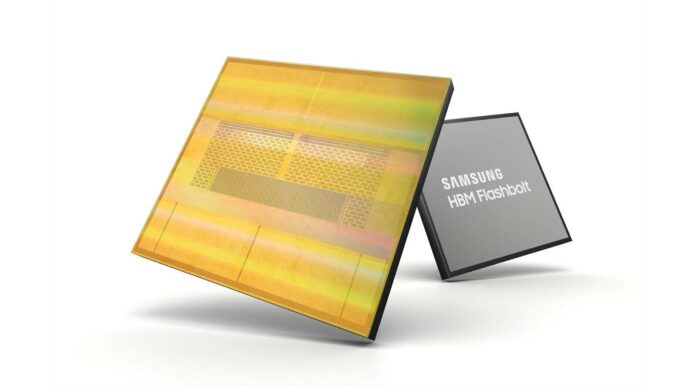Samsung has announced it is hard at work developing a new leading HBM4 memory with 3D packaging. Better yet, it’s not too far away, with a 2025 release date in mind.
Announced via Samsung’s Semiconductor Newsroom, the latest developments in HBM (High Bandwidth Memory) will see 16-Hi Stacks and 3D packaging. It’s quite the leap from the company’s current flagship, HBM3E Shinebolt, which was announced late last year, topping out at 12-Hi Stacks and 2.5D packaging.
This technology is used in everything from graphics cards to NVMe SSD hardware. If utilised on the same 256GB capacities, the new innovations could smash through the current rates of around 10Gbps available through HBM4. Translated from its native Korean (via Wccftech): “Samsung Electronics plans to respond by unifying the core die and diversifying packages, and base dies such as 8H, 12H, and 16H.”
For reference, the recently announced Nvidia Blackwell B200 die uses HBM3E memory with an output of up to 192GB capacities. The proposed new HBM4 memory would see up to 256GB capacities, which could push even further in terms of DRAM performance when stacked, especially as the hardware continues to become denser. Translated to English, Samsung states: “It is expected that a third innovation will occur as DRAM cells and logic evolve to become more mixed, like HBM-PIM.”
Samsung had previously been behind the development of GPU architecture with its 8nm process forging Ampere (RTX 30 Series) and RX 6000 Series (RDNA 2) for Nvidia and AMD, respectively. These graphics card generations were made on HBM2E for GDDR6X. In the most recent GPU generation, gears switched over to TSMC’s 5nm for both manufacturers. Whether Samsung’s HBM4 will appear in the next generation with the upcoming GDDR7 remains to be seen, but the innovations made in DRAM and VRAM cannot be understated here. So long as it doesn’t introduce subscriptions, we’ll be happy.

